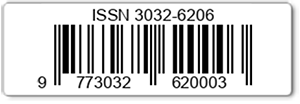The Influence of Tax Avoidance, Profitability, Leverage, and Institutional Ownership on Islamic Social Reporting with Independent Commissioners as Moderating
Keywords:
Tax Avoidance, Profitability, Leverage, Institutional Ownership, Islamic Social Reporting, Independent CommissionerAbstract
This research aims to test and analyze the influence of Tax Avoidance, Profitability, Leverage and Institutional Ownership on Islamic Social Reporting with Independent Commissioners as a moderating variable in companies listed on the Jakarta Islamic Index (JII) in 2017 - 2021. The research object is listed companies in the Jakarta Islamic Index (JII) in the first period 2017 - 2021 and 56 companies were sampled. The sampling technique uses purposive sampling. The data analysis used in this research is multiple linear regression OLS (Ordinary Least Squerst), to get a complete picture of the influence of each independent variable on the dependent variable. The results of this research show that profitability, tax avoidance, institutional ownership and leverage have an influence on the level of Islamic Social Reporting disclosure, whereas partially for the moderation test only profitability, institutional ownership and leverage are moderated by independent commissioners in conducting Islamic Social Reporting disclosures.
References
Abdullah, MA (2010). Sharia Banking Corporate Governance in Indonesia. Yogyakarta: Ar-Ruzz Media.
Alijoyo, A., & Suharto, Z. (2004). Independent Commissioner Driving GCG Practices in the Company. Jakarta: PT Index Gramedia Group.
Andrikopoulos, A., Samitas, A., & Bekiaris, M. (2014). Corporate Social Responsibility Reporting in Financial Institutions: Evidence from Euronext. Research in International Business and Finance, 32,27-35.
Bawono, A., & Shina, AFI (2018). Applied Econometrics for Islamic Economics and Business Applications with Eviews. Salatiga: LP2M IAIN Salatiga Press.
Baydoun, N., & Willet, R. (2000). Islamic Corporate Reports. Abacus. 36(1), 71-90. Dowling, J & Pfeffer, J. (1975). Organizational Legitimacy: Social Values and Organizational
Behavior. Pacific Sociology Review. 18(1), 122-136.
Endraswati, H. (2016). Woman as Board of Commissioners and Sharia Banking Performance in Indonesia. Jakarta: Phoenix Publisher.
Faisal, M. (2004). Banking management. Malang: UMM Press.
Freeman, R., E. (1994). The Politics Of Stakeholder Theory: Some Future Directions. Business Ethics Quarterly
(4), 409-421.
Ghozali, I. (2006). Multivariate Analysis Application with SPSS Program. BPFE Diponegoro University.
Grahovar, M. (2011). The Use of Corporate Responsibility Reports for Managing Legitimacy.
Conference Paper Economics and Law.
Gray, R., Kouhy, R., & Lavers, S. (1995). Corporate Social and Environmental Reporting: A Review of The Literature and A Longitudinal Study of UK Disclosure. Accounting, Auditing, and Accountability Journal, 8(2), 47–77.
Henry. (2017). Accounting Research Review. Jakarta: Grasindo.
Izetbegovic, A. A. (2010). Islam Between East and West. Indianapolis: American Trust Publications.
Jensen, M. C., & Meckling, W. H. (1976). Theory of the Firm: Managerial Behavior, Agency Costs and Ownership Structure. Journal of Financial Economics, 3(4), 305–360.
Meutia, Inten. (2010). Managing CSR Disclosures in Islamic Banks (A Critical Approach).
Jakarta: Citra Pustaka Indonesia.
Purwataatmadja, K., and Antonio, M., S. (1992). What and How Islamic Banking. Yogyakarta: Waqf Bhakti Fund.
Sawitri, DR, Juanda, A., & Jati, AW (2017). Analysis of Indonesian Sharia Banking Corporate Social Responsibility Disclosure Based on the Islamic Social Reporting Index. Compartment: Scientific Journal of Accounting, 15(2), 139–149.
Sudarsono, H. (2007). Sharia Banks and Financial Institutions. Jakarta: Ekonisia.
Sunaryo. (2015). Corporate Social Responsibility in Various Study Perspectives. Lampung: Raharja's Main Gift.
Widyanti, AD, & Cilarisinta, N. (2020). The Influence of Profitability, Institutional Ownership, and Environmental Performance on Islamic Social Reporting. Compartment: Scientific Journal of Accounting, 19(2), 99–109.
Wiyuda, A., & Pramono, H. (2017). The Influence of Good Corporate Governance, Company Characteristics on the Extent of Corporate Social Responsibility Disclosure in Companies Listed on the IDX. Compartment: Scientific Journal of Accounting, 15(1), 12–25.
Yang, WS, Loo, SC, & Shamser. (2009). The Effect of Board Structure and Institutional Ownership Structure on Earnings Management. International Journal of Economics and Management, 3(2), 332-353.
Yusuf, MY (2017). Islamic Social Responsibility (I-CSR) in Sharia Financial Institutions (LKS) Theory and Practice. Jakarta: Kencana.
Downloads
Published
Issue
Section
License
Copyright (c) 2024 Bagas Saputra, Dirvi Surya Abbas (Author)

This work is licensed under a Creative Commons Attribution 4.0 International License.
Simposium Ilmiah Akuntansi under the terms of a Creative Commons Attribution 4.0 International License / CC BY 4.0 This license permits anyone to copy and redistribute this material in any form or format, compose, modify, and make derivative works of this material for any purpose, including commercial purposes, so long as they include credit to the Author of the original work.










